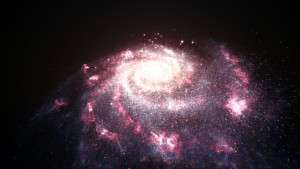Astronomers estimate that there are about 8.8 billion stars in our galaxy that have planets near the size of Earth. Geoffrey Marcy, a professor of astronomy at Berkeley University, went so far as to say that, “With tens of billions of Earth-like planets in each galaxy, our entire universe must contain billions of billions of Earth-like planets.” At first glance, that makes it sound like there must be plenty of other life out there. With so many “Earth-like planets” in space, there surely must be some, or, at the very least ONE, other planet that would support life as we know it. That belief was bolstered in 1966 by the famous astronomer Carl Sagan. He announced that there were only two important conditions that must exist to make life possible on a planet: First, there must be the right kind of star (like our sun), and second, the planet must be the right distance from that star. If that is true, then those who do the math tell us that there should be about 1,000,000,000,000,000,000,000,000 (a septillion) planets in the universe that could support life. Impressive! Because there might be so many potential life-supporting planets, a very pricey listening project, called “Search for Extraterrestrial Intelligence” (SETI), was started in the 1960’s. It involved setting up a huge radio telescopic network in order to listen for any signals of intelligent life coming from outer space. How many potential intelligent sounds have the scientists heard from the universe so far? None! Year after year, they continue listening. To this day, there have been zero results. If there are so many planets that might support life, the “law of averages” tells us that we should be able to find something alive out there. Why the continuing silence? Ironically, new scientific discoveries may have the answer. Instead of just two factors that would be needed for life to exist on a planet (as Sagan thought), the number has now grown to more than 200 necessary factors. Not only that, but each of those 200 conditions must be met precisely, or life cannot exist. When the experts do the math, that brings the odds of life on any planet, including our own, to be close to zero. Even we shouldn’t be here! As Eric Metaxas points out in an article he wrote for The Wall Street Journal, “Fred Hoyle, the astronomer who coined the term ‘big bang,’ said that his atheism was ‘greatly shaken’ at these developments. He later wrote that ‘a common-sense interpretation of the facts suggests that a super-intellect has monkeyed with the physics, as well as with chemistry and biology . . . . The numbers one calculates from the facts seem to me so overwhelming as to put this conclusion almost beyond question.’” [http://goo.gl/lXHbfI] This famous astonomer is now beginning to question both his atheism and his belief that life could have spontaneously evolved on our planet. Many scientists still ridicule those of us who believe that God created this universe. Our universe, however, is a place of intricate order and design. Could it have created itself and still be so orderly? I am convinced that it takes far more faith to believe that the universe just made itself, that everything from the complex interworking of the cells in our bodies to the far-flung galaxies in space just happened through random chance. We can either believe this, however, or we can believe that God created the universe. The question is NOT, “Do you have faith?” but “What do you have your faith in?” As a follower of Jesus Christ, I have decided to trust that, “All things came into being through [Christ], and apart from Him nothing came into being that has come into being” (John 1:3). That is entirely possible because God has unlimited power. He has the power to make the universe out of nothing. “By the word of the Lord the heavens were made, and by the breath of His mouth all their host…. Let all the earth fear the Lord; let all the inhabitants of the world stand in awe of Him. For He spoke, and it was done; He commanded, and it stood fast” (Psalm 33:6, 8–9). Imagine how embarrassing, as well as how disastrous, it would be to find yourself standing before the Creator of the universe—the One you had refused to put your trust in. “In these last days [God] has spoken to us in His Son, whom He appointed heir of all things, through whom also He made the world” (Hebrews 1:2). Is there life on other planets? We won’t know for sure unless we are able to visit every other planet in the universe. Until then, faith is the only answer. In what will you choose to put your faith?
[http://goo.gl/7xz9xy]


Leave A Comment